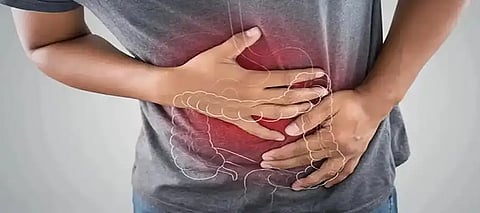Pune reports 59 cases of Guillain-Barré Syndrome, 12 patients on ventilator support
A total of 59 people have been diagnosed with Gullian-Barrié Syndrome (GBS), a rare neurological disorder, in Pune. Of these 12 are on ventilator support.
Pune Divisional Commissioner Dr. Chandrakant Pulkundwar on Wednesday called a meeting of state and civic health officials to review the situation after hospitals started reporting cases of GBS, mostly from the Sinhagad area to Pune Municipal Corporation (PMC).
He stated that the officials have been directed to take a thorough medical history of the affected persons. GBS is an autoimmune disease that produces antibodies that attack the body’s nerves. “It is a sequela of either gastrointestinal or influenza-like illness. However, there is no need to panic.” Dr Pulkundwar said.
People have, however, been urged to boil water for drinking, and avoid eating stale or uncovered food. As per state health department data 33, of the 59 patients are from rural parts of Pune, 11 are from within the corporation limits, and 12 are from Pimpri Chinchwad Municipal Corporation. Three patients are from other districts.
Eleven children with GBS are in the 0-9 age group and 12 are teenagers, in the 10-19 age group. Seven patients are in the 20-29 age group while eight patients each are from the 30-39 and 40-49 age group. Five patients are in the 50-59 age group, seven in the 60-69 age group, and one person in the 70-80 age group. There are 38 men and 21 women diagnosed with GBS and admitted to various hospitals.
Usually, there is a rapid onset of weakness in the lower limbs, then upper limbs, which spreads to breathing muscles. A common risk factor for GBS is infection from the bacteria Campylobacter jejuni. However, Dr Amit Dravid, infectious diseases consultant, and other doctors urged people not to panic as only about one in every 1,000 people with Campylobacter infection gets GBS.
Doctors, however, said studies indicate GBS-related bacteria are linked to inadequately disinfected water and called to outbreaks.
When asked about the source of the infection, the district collector said directives had been issued to collect water samples from the affected areas. “A team from the Indian Council of Medical Research (ICMR)-National Institute of Virology (NIV) also collected samples from patients, and their report is expected soon,” District Collector Jitendra Dudi said.
Meanwhile, the collector said as the medicines — intravenous immunoglobulin (IVIG), are expensive, they have sought approval from the government to include them under the Mahatma Jyotiba Phule Jan Arogya Yojana, the Maharashtra government’s flagship health insurance scheme.

